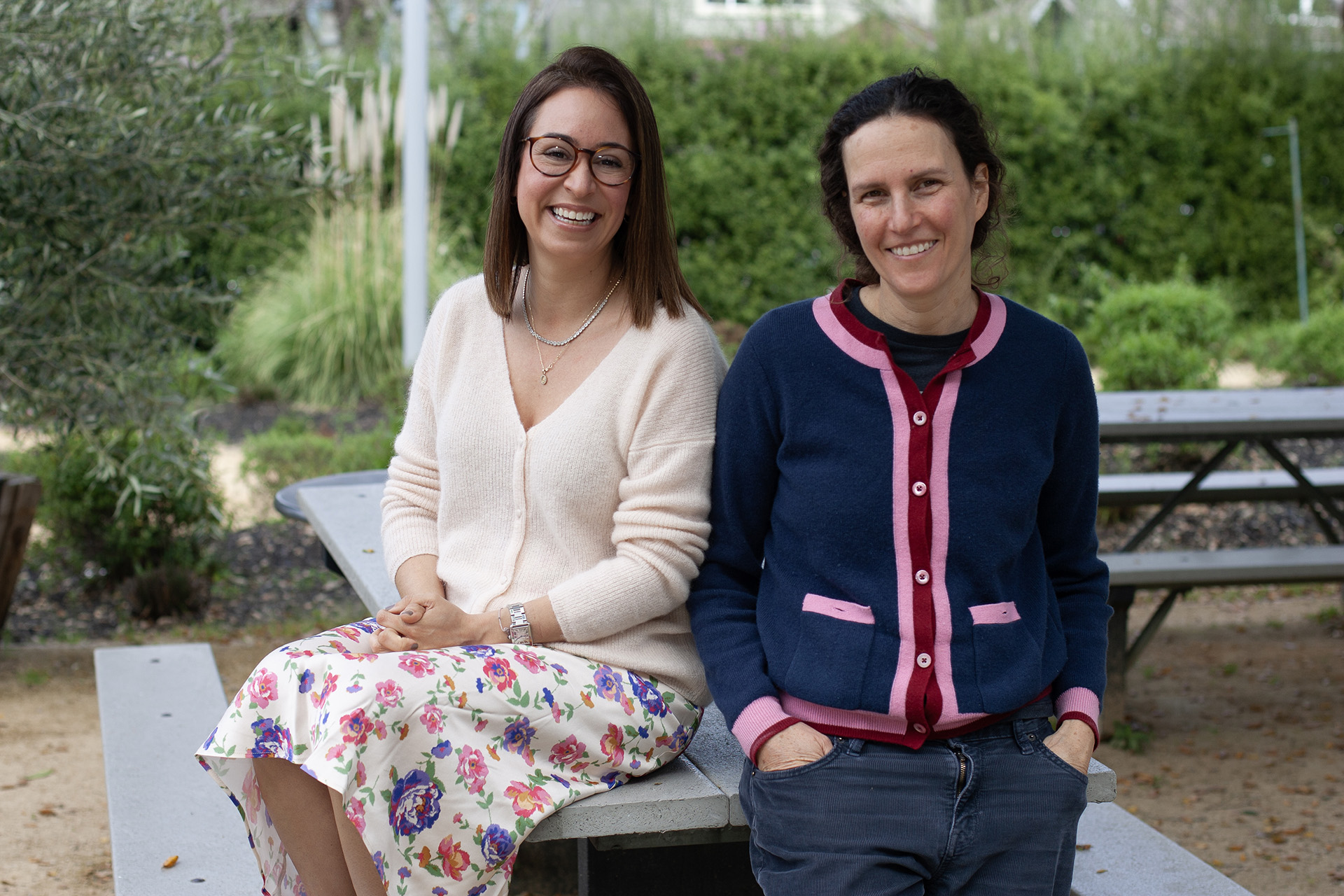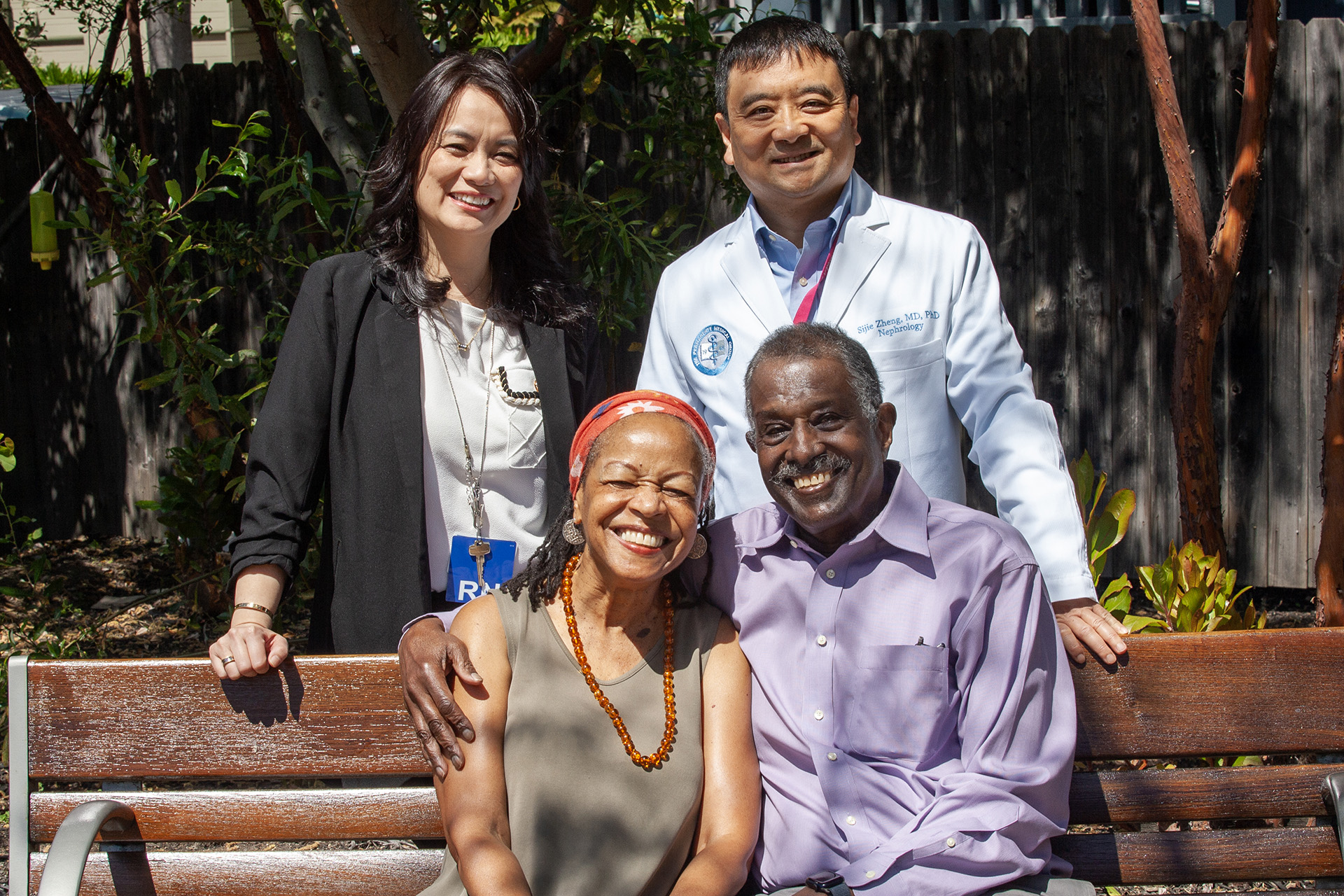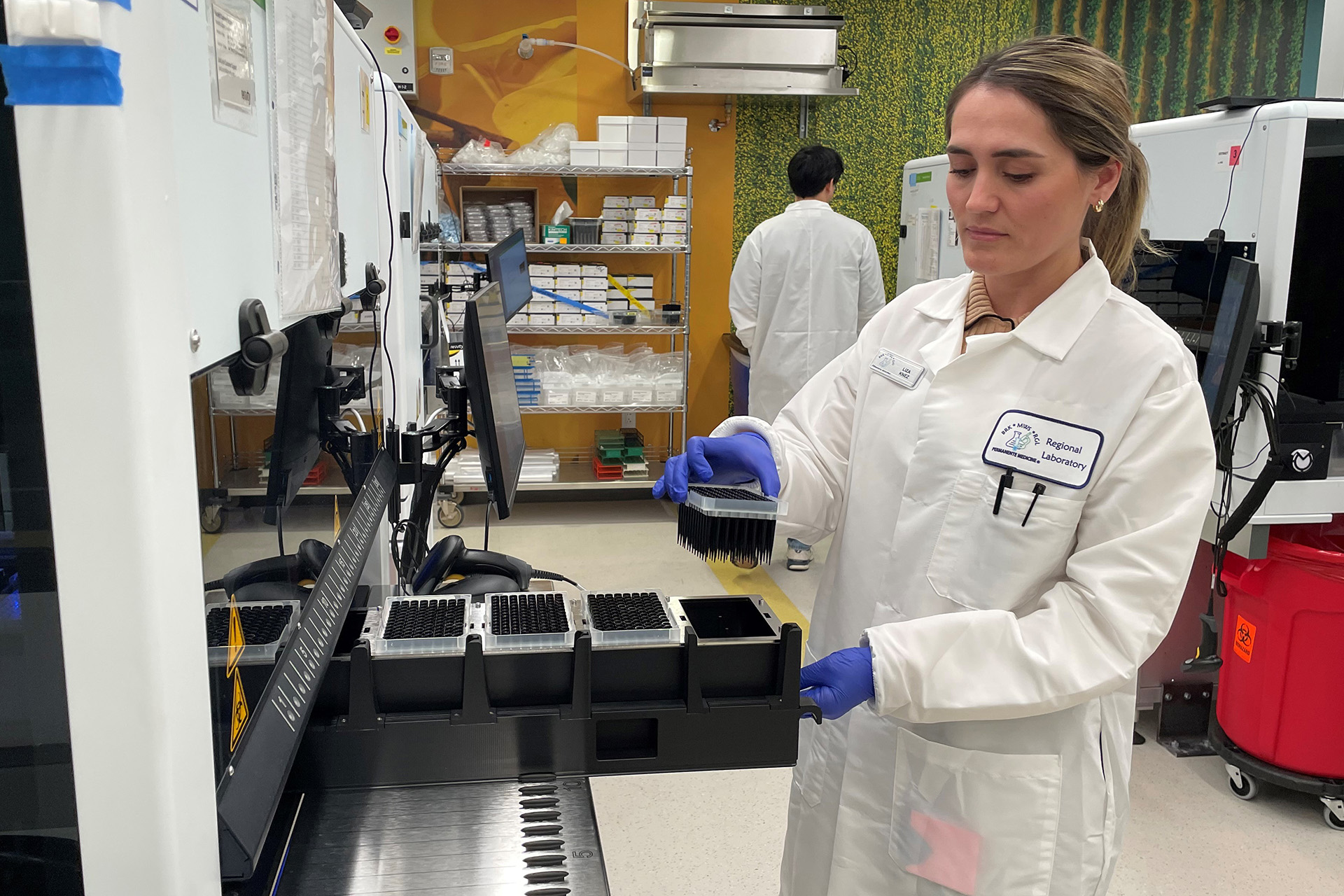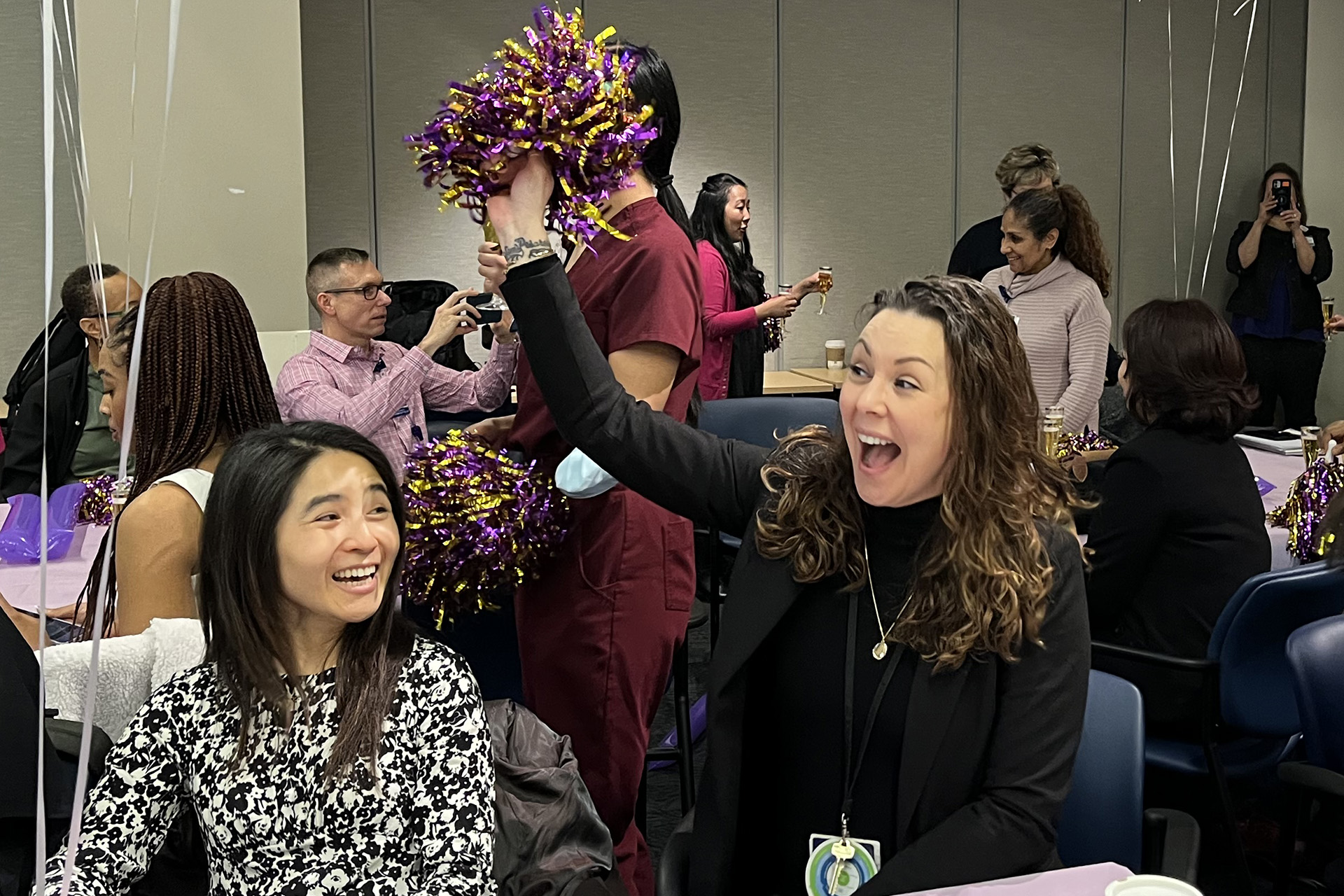The severe period pain started when Ana Navarro was a teenager in Mexico. She took powerful pain killers. Sometimes they didn’t help. She asked many doctors about the pain, and they told her it was a normal part of getting periods.
One time, Navarro was in such terrible pain she could not move from the fetal position. Her mom took her to the emergency room, where doctors figured out what was wrong.
Seven years after her symptom sbegan, the 22-year-old Navarro was diagnosed with endometriosis, a chronic condition where tissue that should be lining the uterus grows in ovaries, the lining of pelvic walls, and other places.
“My mom and I were frustrated,” said Navarro, now 38. “It took too long to diagnose.”
“The most important aspect of diagnosing our patients is to truly listen to their stories.”
– Miya Yamamoto, MD
This complex condition can take years to diagnose, in part because clinicians don’t always recognize it. Historically, clinicians have minimized patients’ complaints about their periods, said Miya Yamamoto, MD, clinical lead for endometriosis for Kaiser Permanente in Northern California.
“Unfortunately, Ana’s story is very common,” Dr. Yamamoto said. “The most important aspect of treating our patients is to truly listen to their stories. We take their pain seriously and want to get them in treatment sooner.”
In the United States, endometriosis affects 65 million or 11% of women and people with a uterus, ages 15 to 44, according to the Office of Women’s Health, part of the U.S. Department of Health & Human Services. Endometriosis can cause severe pain during menstruation and with sexual activity. It may also lead to infertility.
Offering Comprehensive Care
Eve Zaritsky, MD, an endometriosis specialist in Oakland, points to the emotional toll that accompanies the condition.
“It can cause patients significant frustration, relationship stress, loss of quality of life, and high use of medical care,” Dr. Zaritsky said.
At Kaiser Permanente, patients receive comprehensive care for endometriosis, with a focus on reducing pain and preserving fertility. In Northern California, members can connect easily to about 20 physicians specializing in endometriosis, Dr. Yamamoto said. Most specialists are fellowship trained in minimally invasive surgery. They also work closely with various clinicians who have expertise in pelvic pain and fertility, Dr. Zaritsky said.
Dr. Yamamoto added: “People don’t realize that we offer individualized, complete endometriosis care led by endometriosis specialists.”
Treatment for endometriosis can include over-the-counter medications, such as ibuprofen and hormonal management, to suppress periods and endometriosis. Physical therapy can also reduce various types of pain. Some patients may need to undergo surgery to remove implants and ovarian cysts caused by endometriosis, or to help with fertility.
Having her miracle baby
To keep the endometriosis from returning, Navarro’s doctors in Mexico put her on birth control and a period suppressant. That treatment threw her into a temporary menopause in her early 20’s.
Endometriosis also led to fertility problems for Navarro, who at this point was in her early 30’s and living in the San Francisco Bay Area. Before she could continue with fertility treatment, she underwent surgery at Kaiser Permanente.
Dr. Zaritsky cleared out Navarro’s endometriosis. It was so severe that she had to remove her appendix and fallopian tubes.
Navarro, an orthodontist living in Alameda, California, was happy with her care at Kaiser Permanente.
“I was acknowledged more. I felt that my care team understood that I have this. They explained things, and gave me options,” Navarro said. “I felt well cared for.”
After the surgery, she got pregnant via in vitro fertilization. She calls her daughter her “miracle baby.”
Navarro wants to share her experiences, so others can get the help they need.
“I had so many instances when doctors didn’t believe my pain. They dismissed my symptoms. They told me, ‘You shouldn’t be worried, you can get pregnant,’” she said. “I want to help other women who are going through this. Many times, it’s undiagnosed. I want women to realize they are not alone.”





This Post Has 0 Comments